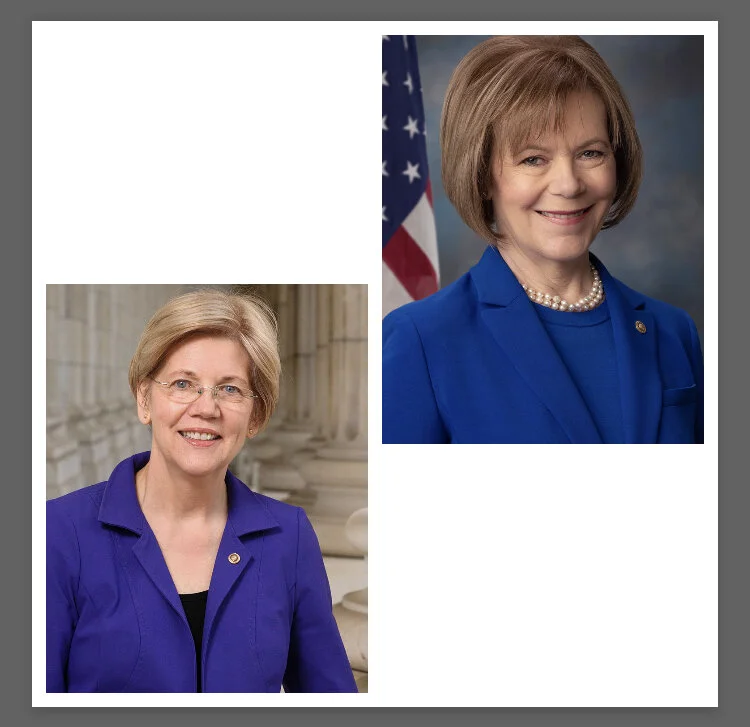30 Senators Led by Elizabeth Warren and Tina Smith Send Letter To Senate Leadership Advocating For 50 Billion In Emergency Funding For Child Care Industry
On April 28th, 30 Senators Led by Elizabeth Warren and Tina Smith sent a letter To Senate Leadership Advocating For 50 Billion In Emergency Funding For Child Care Industry.
The letter opens with the following paragraph: “We write to strongly urge you to prioritize funding childcare in the next legislative package that responds to the public health and economic effects of the coronavirus pandemic and emergency. While the $3.5 billion for childcare included in the Coronavirus Aid, Relief, and Economic Security Act(CARES Act)was an important first step in helping to fund childcare for front line healthcare workers and other essential employees, since its passage,we have only learned more about the extent of closures required by this pandemic and the dire situation that childcare providers are in,which necessitates additional relief. Accordingly, we urge you to provide at least $50 billion in emergency funding in order to stabilize the entire childcare industry, provide childcare for essential workers including healthcare workers, and investing childcare for our long-term economic recovery.”
Senators Elizabeth Warren (D-MA) and Tina Smith (D-MN) initially unveiled their plan on April 15 in a medium post where they wrote “ Here’s the stark truth: when the time comes, we will not be able to rebuild our economy if this country’s child care system has collapsed beneath the economic burden of this pandemic. When the economy can start to safely get back on track, millions of parents will not be able to return to work or reopen their own small businesses if they cannot find safe, affordable, and reliable care for their children. And if child care providers must close their doors for months, we risk permanently reducing the supply of child care in this country.That’s why we’re calling for a $50 billion child care investment to stabilize the child care system, keep providers in business, and ensure parents are able to go back to work when it is safe to do so.”
This plan has already got a lot of publicity:
Vox published a piece about the plan writing “The proposal is far more ambitious than the $3.5 billion set aside for child care in the recent federal stimulus legislation. And thus its prospects in the Republican-controlled Senate are uncertain, to say the least. But it is in line with what child care experts say is necessary to make sure child care providers can keep paying their workers during this time and reopen when it is safe to do so — and to remedy some of the inequities that have left child care workers in this country underpaid, overworked, and unacknowledged.”
The Boston Globe’s article about the plan added context in their reporting saying the “The letter comes as negotiations over a new coronavirus relief package are playing out in the media. The bipartisan National Governors Association has called on Congress to prioritize state and local budgets in the next bill, drawing a rebuke from McConnell, who suggested states should instead be allowed to file for bankruptcy.
An op ed published in Time Magazine contrasted what the childcare industry has received during the COVID-19 crisis vs. what the airline industry has received writing “ The childcare industry requested $50 billion in stimulus relief to help it survive the pandemic, but the $2 trillion CARES Act included only $3.5 billion in grants to states through the Child Care and Development Block Grant Program and $750 million for Head Start programs. In contrast, it included $61 billion in relief for the U.S. airline industry, despite airline CEOs earning millions of dollars a year and spending billions on stock buybacks.”
The Center For American Progress published their analysis of the dire nature of the situation writing “we estimate that without public funding, the United States could lose 4.5 million—or nearly half (49 percent)—of the nation’s licensed child care slots as a result of the pandemic. Oklahoma, South Carolina, and Utah could be hit especially hard, losing more than 60 percent of their states’ child care supply. In Utah, the estimated number of children per available childcare slot could nearly quadruple.
It remains to be seen what impact this letter will have on the 70 senators who did not sign onto it.





